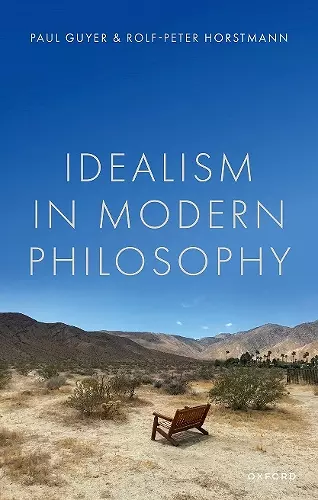Idealism in Modern Philosophy
Rolf-Peter Horstmann author Paul Guyer author
Format:Hardback
Publisher:Oxford University Press
Published:23rd Mar '23
Currently unavailable, and unfortunately no date known when it will be back
This hardback is available in another edition too:
- Paperback£22.99(9780192848581)

This book tells the story of idealism in modern philosophy, from the seventeenth century to the turn of the twenty-first. Paul Guyer and Rolf-Peter Horstmann define idealism as the reduction of all reality to something mental in nature. Rather than distinguishing between metaphysical and epistemological versions of idealism, they distinguish between metaphysical and epistemological motivations for idealism. They argue that while metaphysical arguments for idealism have only rarely been accepted, for example by Bishop Berkeley in the early eighteenth century and the British idealists Bradley and McTaggart in the late nineteenth and early twentieth centuries, epistemological arguments for idealism have been widely accepted, even in the so-called analytic philosophy of the twentieth century. Guyer and Horstmann discuss many philosophers who have played a role in the development of idealism, from Descartes, Hobbes, Spinoza, Leibniz, Locke, Berkeley, and Hume, through Kant; the German idealists Fichte, Schelling, and Hegel; Schopenhauer and Nietzsche; the British and American idealists such as Green and Royce in addition to Bradley and McTaggart; G.E. Moore and Bertrand Russell, Neo-Kantians such as Ernst Cassirer; and twentieth-century philosophers such as Wittgenstein, Collingwood, Carnap, Sellars, and McDowell.
In their volume Idealism in Modern Philosophy, Paul Guyer and Rolf-Peter Horstmann engage with the notion of idealism within the history of philosophy from the 17th to the early 21st century. * Mattia Megli, Universa. Reviews of Philosophy *
ISBN: 9780192848574
Dimensions: 222mm x 145mm x 20mm
Weight: 442g
244 pages